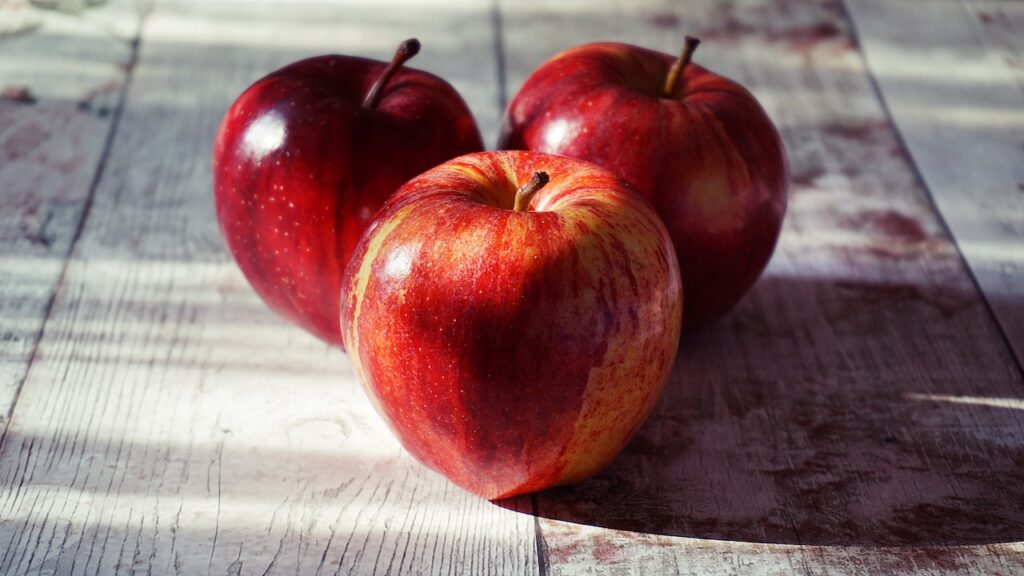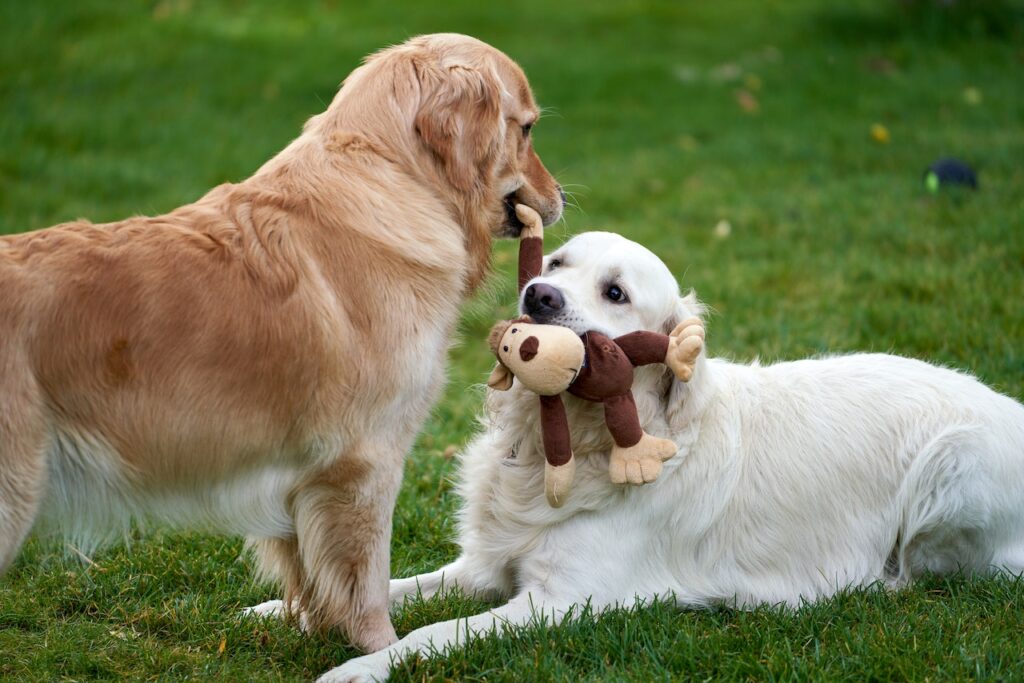
Can Dogs Eat Apples? Yes, dogs can eat apples in moderation. Apples are a nutritious snack for dogs, containing essential vitamins and minerals. They’re also low in calories and high in fiber, making them an excellent addition to a dog’s diet.
Vitamins and Minerals: Apples contain many essential vitamins and minerals, including vitamin C, vitamin A, and potassium, which are beneficial for a dog’s overall health.
Digestive Health: Apples are high in fiber, which can help promote good digestive health in dogs. Fiber helps keep the digestive system regular and can prevent constipation.
Hydration: Apples have a high water content, which can help keep your dog hydrated, especially on hot days.

Dental Health: Crunching on apple slices can help remove plaque and debris from your dog’s teeth, promoting good dental health.
Choking Hazard: It’s important to slice apples into small pieces to avoid choking hazards. Avoid giving your dog the core or seeds, as they contain small amounts of cyanide, which can be harmful to dogs.
Upset Stomach: While rare, some dogs may experience digestive upset after eating apples. This can be due to the high fiber content or an allergic reaction.
Weight Gain: Apples are low in calories, but they still contain sugar. Feeding too many apples to your dog can lead to weight gain and other health problems.
When feeding apples to your dog, always remember to wash them thoroughly to remove any pesticides or dirt. Remove the core and seeds, and slice the apple into small pieces. You can serve them raw or cooked, but avoid adding any sugar or sweeteners. It’s best to feed apples as an occasional treat, and not as a substitute for a balanced diet.

In conclusion, apples are a healthy and nutritious snack for dogs, but they should be fed in moderation. Apples can provide many benefits to a dog’s health, including vitamins and minerals, digestive health, hydration, and dental health. However, it’s important to be aware of the potential risks, including choking hazards, digestive upset, and weight gain. As always, consult with your veterinarian before introducing any new foods to your dog’s diet.